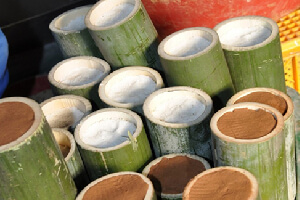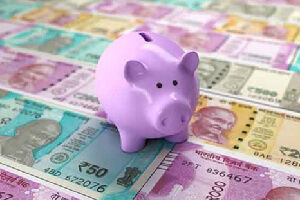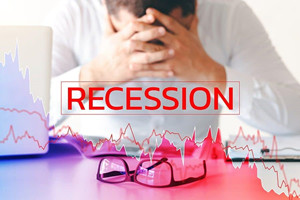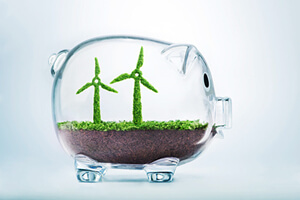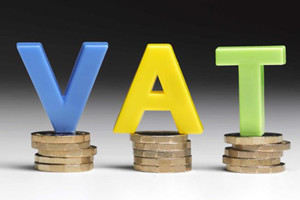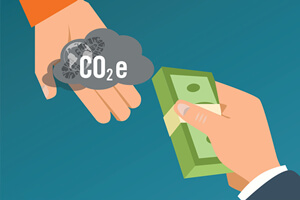Your Coffee Is Getting More Expensive. Here’s Why
It’s not just you your daily coffee ritual is getting more expensive. If you walk into an American cafe right now, your average coffee drink is going to run you around $4.50. Five years ago, it would have cost you just $3.85. Nearly a 17% rise in prices. That’s compared to inflation, which has grown around 10% during the same period. That rise is driven by a myriad of economic forces that help determine the cost of your morning cup. And now experts say that due to a major crop loss in 2020, in a matter of months, prices could go up even more. We’ll explain.
The price of coffee is driven in part by a complex global supply chain which shapes a more than $460 billion market. Most coffee beans are produced in Brazil, Vietnam, and Columbia. They’re then loaded on ships like these and then transported around the world. This well-oiled system moves the beans to importing countries like the US, where they’re then sold to coffee traders who sell them to roasteries. The roasted coffee is then sold to distributors such as grocery stores and cafes. Max Copestake is a Coffee Futures Broker.
Max Copestake: The trade operates on paper-thin margin it’s extremely competitive business now. Things like shipping costs are massive.
Narrator: During the pandemic, the industry has faced a number of shipping disruptions. A shipping container shortage in Southeast Asia has driven up the price of many commodities, including coffee.
Jose Sette: Everything is taking longer to get from one place to the other, containers are piling up in places where they shouldn’t be.
Narrator: Jose Sette is the Executive Director of the ICO a leading inter-governmental organization for coffee.
Jose Sette: It’s not just Southeast Asia, all over the world, we have problems finding sufficient containers. So that means that freight rates tend to rise and increase the prices.
Narrator: Coffee exports are also affected by storms. In Nicaragua and Honduras, communities were devastated by hurricanes last year.
Jose Sette: They caused a lot of damage to infrastructure, washed out bridges, landslides that block roads.
Narrator: The destroyed roads block trade routes. And this meant the supply being imported into countries like the US was diminished. The concern over a lack of supply help drive up the price of coffee futures and experts say this could continue.
Jose Sette: As temperature increases this affects the viability of growing coffee especially Arabica coffee. Robusta, as its name indicates, is robust, is strong and is harder to be affected by climatic phenomenon. It’s very resistant. But Arabica coffee is more delicate. It grows within quite a narrow temperature range.
Narrator: Over the past year, the world’s largest coffee producer Brazil, faced a drought that devastated crops. The International Coffee Organization says that around 30% of the country’s Arabica crop may have been lost. This year’s coffee yields will also be lower because Brazil is in an off-cycle harvest which happens every other year.
Marex Spectron: The off-cycle is small, and we know that anyway but this year is extra small. And this has got people really spooked ‘cause, all of a sudden, everyone’s like, “Hang on. We need this huge country because we’ve become so reliant on you.”
Narrator: Marex Spectron estimates that the global coffee market will produce millions fewer bags than the previous crop year. You can see these factors are pushing up the price of coffee futures, but overall, the effects of the drought haven’t yet been felt in your local cafe or grocery store. With weather becoming more extreme around the world due to climate change, experts say risk to coffee production will continue.
Jose Sette: As temperatures increase, you would expect to find that areas that currently produce Arabica will become too hot. And we have to think about ways to mitigate this, whether by different farming techniques or whether and this is a more difficult process, migrating production.
Narrator: And as volatile weather increasingly leads to fluctuations in the supply of coffee, demand tends to stay pretty steady. This is because coffee is relatively inelastic, meaning that even when the economy fluctuates, people keep buying beans.
Jose Sette: It doesn’t change much if prices go up or down. Let me try and explain this in simple terms. If prices double in your supermarket next week, you are likely to change your habits to some extent. You will maybe switch over to a cheaper brand. You may not drink as much coffee outside the home where it is more expensive.
Narrator: But it’s unlikely you’ll stop drinking coffee altogether. When the pandemic took hold in March, 2020, people were forced to stay home. Demand for out of home coffee plunged, but demand for in-home coffee rose, making up some of the difference in consumption. And as the pandemic continued, another pressure on coffee pricing was playing out in global currencies. Coffee future prices are tied to the US dollar and Brazilian real. The dollar is a global safe haven in times of economic trouble.
So during the pandemic, coffee farmers were incentivized to take advantage of the strong exchange rate and sell off their beans. The result: less stored coffee will be available next harvest when crop yields are expected to be unusually low, this is causing an imbalance between the lower supply of coffee and the expected rise in demand. And this is why experts say coffee prices are currently lower than they should be. They say that this expected rise in prices will affect the entire supply chain. And in six to nine months, it could drive up the price of your morning cup – even more.


